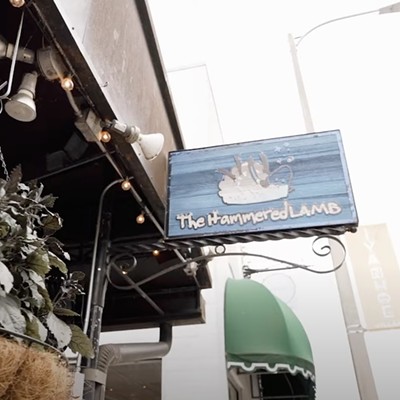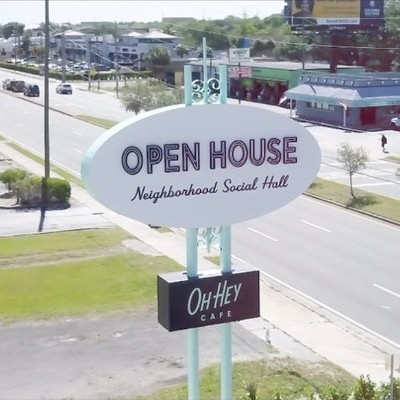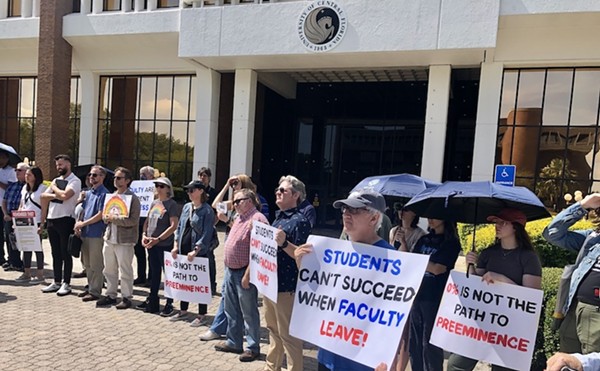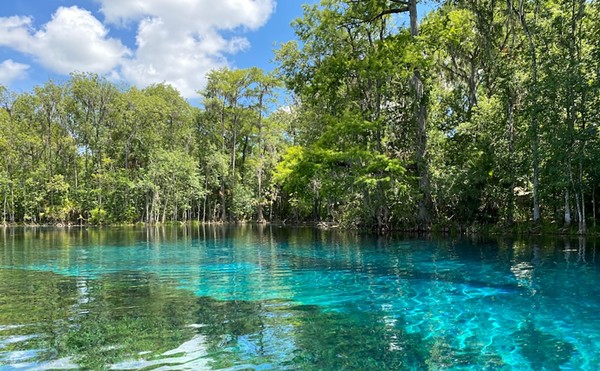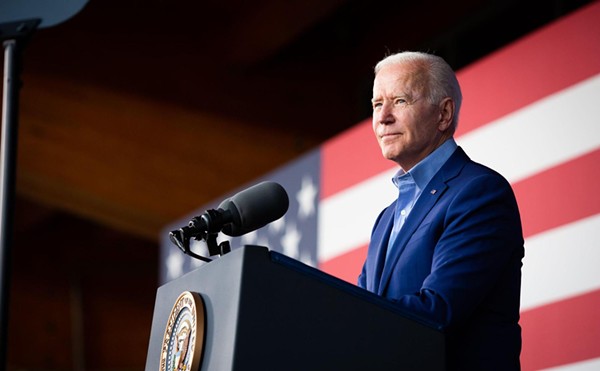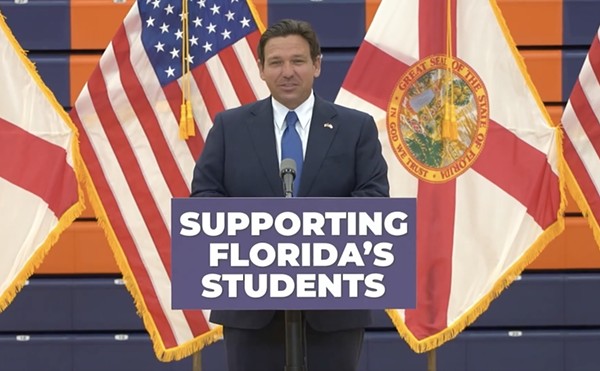From hip-hop to cyberpunk, from The Weather Channel to fashion, Andrew Ross has been in the vanguard of emergent cultural studies. Currently the director of American Studies at New York University, Ross is spending this year living at Disney's Celebration, researching an upcoming book.
An ongoing interest in his research and writings has been the social construction of limits. He took time out to answer a few questions about while in Central Florida.
Orlando Weekly: The Orange County Commission recently rejected a proposal to limit growth east of the Econlockhatchee River. What do you think of the decision?
Andrew Ross: Decisions like this prove how weak the region's growth management legislation actually is. It's a great tragedy that the county couldn't set a better example. Municipalities all over are seeing the benefits of setting Urban Growth Boundaries. A UGB is an officially adopted line that separates an urban area from its surrounding greenbelt of open lands. As a regulatory tool, UGBs can resolve the gridlock between conservation and development, because they bring certainty to the issue of which lands will be developed and conserved. UGBs encourage public and private development within or along the urban fringe in a compact manner -- i.e. high-density and transit-friendly. [County Chairman Linda] Chapin's proposal was a weak ad hoc attempt at a "moratorium on growth" -- the most blasphemous words in Central Florida -- and all too easy for large landowners to lobby against.
OW: Florida is spending $91 million to purchase Lake Apopka farmland so that chemical and fertilizer run-off can be halted. The buy-out will displace several thousand minority farmworkers, threatening to eliminate a community and its culture. What's your take on this situation?
AR: Is this a case which can simply be reduced to the media grandstanders' favorite cliché: environment vs. jobs? There's certainly nothing new about the big farmers making off like bandits, and through some corrupt public handout at that. And there's nothing new about minority farmworkers being left, cruelly, to fend for themselves. But, as I understand it, the folks who lobbied most fiercely for the buyout were a group of middle-class homeowners whose equity stood to benefit greatly from the value-adding environmental cleanup of the lake. Here's a classic example of how the state services the interests of its monied and propertied constituents. The result may well be an even greater environmental disaster if the neighboring lands, rich in toxics from decades of chemical treatments, are allowed to be flooded, exposing lake life to the arsenal of poison that agribusiness employs to boost its yield.
OW: Greater Orlando is the only metropolitan area of more than 1 million population in the United States without a completed beltway around its core. What do you make of Central Florida traffic?
AR: One of the gnomic wisdoms of traffic engineers should be: "Sometimes all a new highway does is create more traffic." The GreeneWay is an overt case of private interests controlling the traffic agenda. Proper regional planning has to look at more than the traffic network. Until the fabric of the city and suburbs are radically changed, and the close proximity to places of working, shopping, and entertaining is guaranteed, the car will remain a long-term necessity, despite its huge human and social costs.
You might also throw in education there. Given the region's difficulty in raising any kind of tax revenue to alleviate school overcrowding and penurious teachers' salaries, it's not inconceivable that a portion of gas taxes, highway tolls, emissions fees, registration and licensing fees, and parking charges might be turned over to fund public education.
OW: Do you agree with social critics who say Orlando is replicating Disney?
AR: No doubt Disney has spawned its imitations along the strips, and the influence of its aesthetic is now reaching into the city as it vies for tourist dollars. It's important not to be moralistic in this regard. We first have to understand what fun and leisure and nostalgia really are before we leap to condemn their commodification. The strongest critics often come off as grim opponents of pleasure, incapable of appreciating the basics of popular hedonism. A case in point is the mayor's recent repressive clampdown on Orlando's club culture. Orlando had the makings of one of the strongest underground DJ/dance cultures of any provincial city in the U.S. More enlightened politicians might have seen this as a cultural asset -- the "Orlando scene" -- to boost the city's prestige internationally, just as much as the plans for a performing arts center downtown. Now that involves educating the folks in power, not simply scoffing at their wrong-headedness, or their limited, high-art definition of what constitutes "culture."


